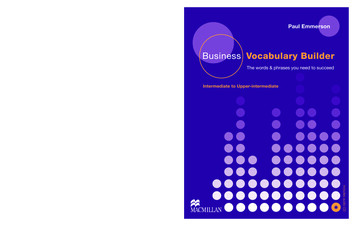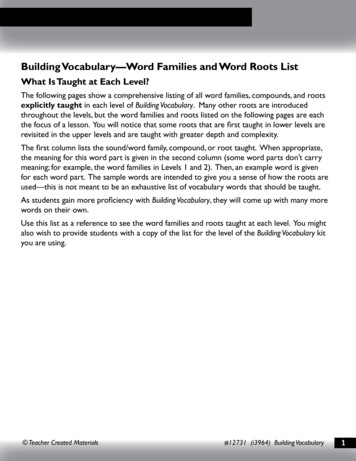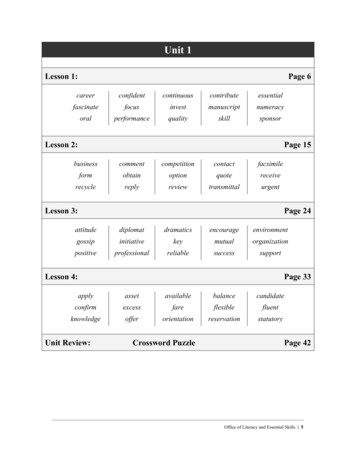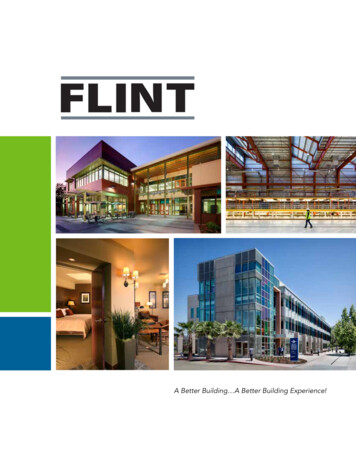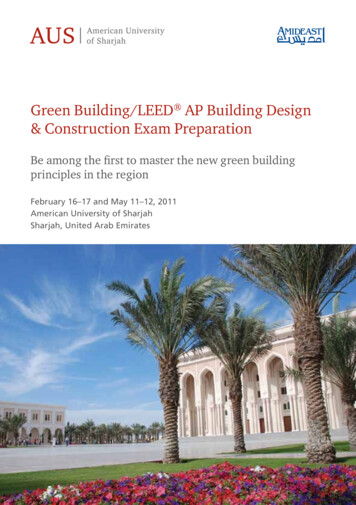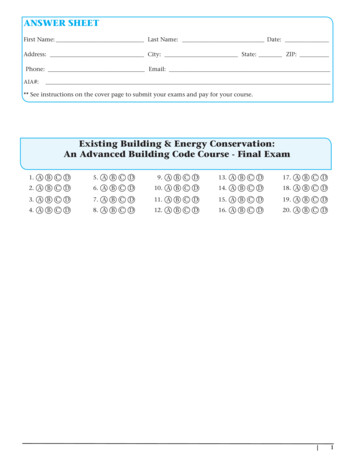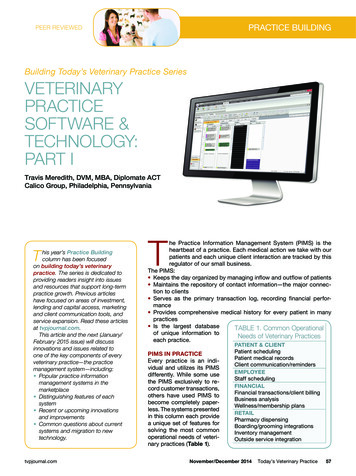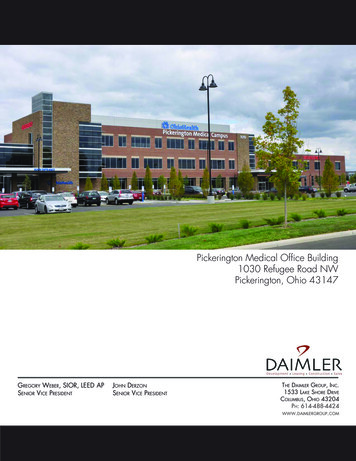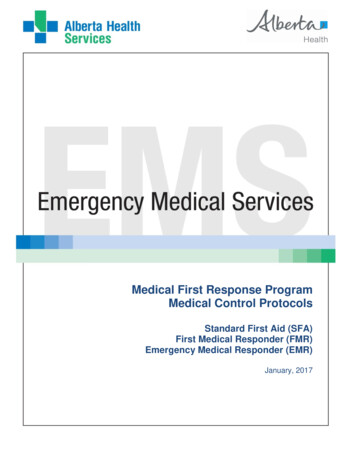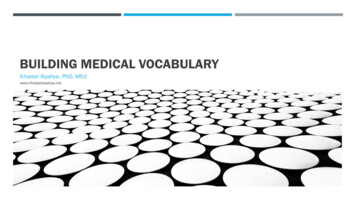
Transcription
BUILDING MEDICAL VOCABULARYKhaleel Alyahya, PhD, MEdwww.khaleelalyahya.net
RESOURCES* Information, pictures and figures of this lecture were taken from one or more of the following books:Mastering Medical TerminologyBy Sue Walker, Maryann Wood and Jenny NicolMosby’s DictionaryElaine Marieb and Suzanne KellerEssential of Human Anatomy and PhysiologyBy Mosby
PRONUNCIATION OF TERMS In the book, phonetic spelling is provided to help you pronounce many of the medical termsthat are included. Wherever lists of terms or medical conditions are provided, the pronunciation is alsoincluded. Each word or term is written using the correct spelling, followed by the phonetic spelling. The syllable on which the pronunciation stress falls is written in capital letters and the restof the syllables are in lower case. You should practice pronouncing each term whenever you see the phonetic spellingprovided. Example: biology is written phonetically as bi-OL-o-jee endoscopy is written phonetically as en-DOS-kop-ee cardiac is written phonetically as KAR-dee-ak gastroenterology is written phonetically as gas-tro-ENT-er-OL-o-jeeWhile some medical terms are quite easy to pronounce, there are some that seem to bemore difficult.Khaleel Alyahya, PhD, MEd
SPELLING CONVENTIONS Many medical terminology books are written using American spelling conventions. However, the textbook of the course uses only Australian/British spelling conventions. Both forms of spelling are equally correct but different countries prefer to use one form over the other. Accurate spelling of medical words is an essential part of studying medical terminology. In some instances, correct spelling is extremely important to the meaning of the term. Sometimes words sound the same, or very similar, but have a completely different meaning. Example: This example demonstrates that by changing just one letter in a word, the meaning can be entirely different. Therefore, it is very important to get the spelling correct so that the meaning of the word in context is alsocorrect. If in doubt, always check the spelling in your medical dictionaryKhaleel Alyahya, PhD, MEd
FORMING PLURALS Forming plurals of medical terms can sometimes be challenging. Mostly plurals of medical terms are formed following normal English languageconventions. For Example: Adding s or es to the end of a word (bone/bones) or changing the letter y to ies(biopsy/biopsies). However, there are exceptions. The following table demonstrates how to make plurals from singular terms based onword endings.Khaleel Alyahya, PhD, MEd
EPONYMS In medical language, the eponym is a disease, body structure, instrument, procedureor test that is named after the person who first identified the disease or structure ordeveloped the instrument, procedure or test bearing the name. In the past, a possessive (’s) was included after the name of the person (for example,Crohn’s disease) but this practice is slowly beginning to be dropped (for example,Down syndrome). There are some significant problems with the use of eponyms. The name may be used to describe more than one entity, leading to confusionamongst health workers. Also the use of eponyms is not universal between countries and even between healthfacilities which leads to confusion. Listed on page 18 of the “Mastering Medical Terminology” are a small number ofeponyms to raise your awareness of the concept.Khaleel Alyahya, PhD, MEd
MNEMONICS Mnemonic is a learning technique that assists in information retention bytranslating information into a form that is more easily remembered than theoriginal form. Common techniques used include creating acronyms or memorable phrases. These work on the principle that we more easily remember spatial, personal orhumorous information than abstract or impersonal information. You may find this a useful learning technique as you work toward building yourknowledge of medical terminology. Below are several examples of mnemonics but you can also create your own.Khaleel Alyahya, PhD, MEd
EXERCISESKhaleel Alyahya, PhD, MEd
EXERCISESKhaleel Alyahya, PhD, MEd
EXERCISESKhaleel Alyahya, PhD, MEd
EXERCISESKhaleel Alyahya, PhD, MEd
EXERCISESKhaleel Alyahya, PhD, MEd
EXERCISESKhaleel Alyahya, PhD, MEd
QUESTIONS?alkhaleel@ksu.edu.sa
BUILDING MEDICAL VOCABULARY Khaleel Alyahya, PhD, MEd www.khaleelalyahya.net. RESOURCES By Sue Walker, Maryann Wood and Jenny Nicol Mastering Medical Terminology Elaine Marieb and Suzanne Keller Essential of Human Anatomy and Physiology By Mosby Mosby’s Dictionary * Information, pictures and figures of this lecture were taken from one or more of the following books:
